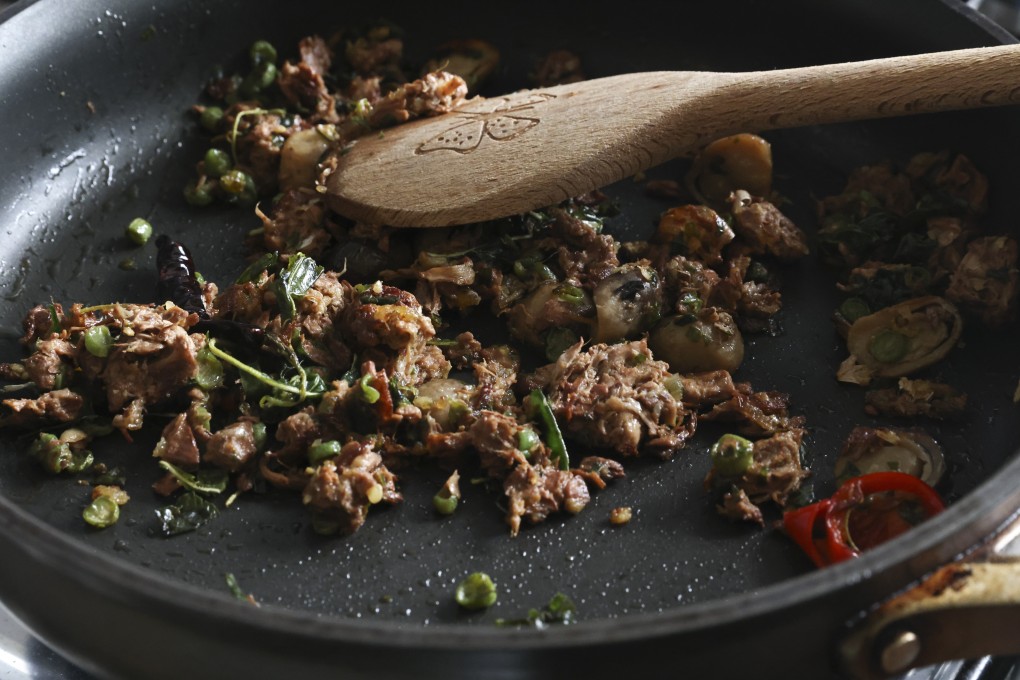Advertisement
Jackfruit is the plant-based protein of choice for Singaporean start-up as global demand for meat alternatives continues to rise
- Karana has partnered with two of Hong Kong’s best known chefs, Shane Osborn of Arcane and Manav Tuli of Chaat, to introduce its brand to local diners
- Its whole plant meat shreds and mince are easy for professional chefs and home cooks to use, and Karana expects to launch retail sales later this year
Reading Time:4 minutes
Why you can trust SCMP

Karana, a Singapore-based food start-up, is feeding the ever-increasing demand for plant-based proteins with a product that uses the tropical jackfruit.
It has partnered with two of Hong Kong’s best known chefs to introduce its brand to city diners; it expects to have products available for Hong Kong home cooks by the end of the year.
Karana uses only jackfruit, oil, salt and natural flavourings to make its whole plant meat shreds and mince. It sources jackfruit in Sri Lanka, where they are partly processed before final processing in Singapore.
Advertisement

“Most of the plant-based products out there are made using heavily processed commodity crops like pea, soy and wheat, and instead we are turning to the biodiversity that exists in nature,” co-founder Blair Crichton, 35, explains. “Currently, we only consume something like 300 out of 300,000 edible plant species, and 12 crops make up 75 per cent of what we eat, so there’s this huge untapped resource out there in nature.”
Advertisement
Retail sales of plant-based meats are worth US$7 billion and growing by double digits every year.
Advertisement
Select Voice
Select Speed
1.00x